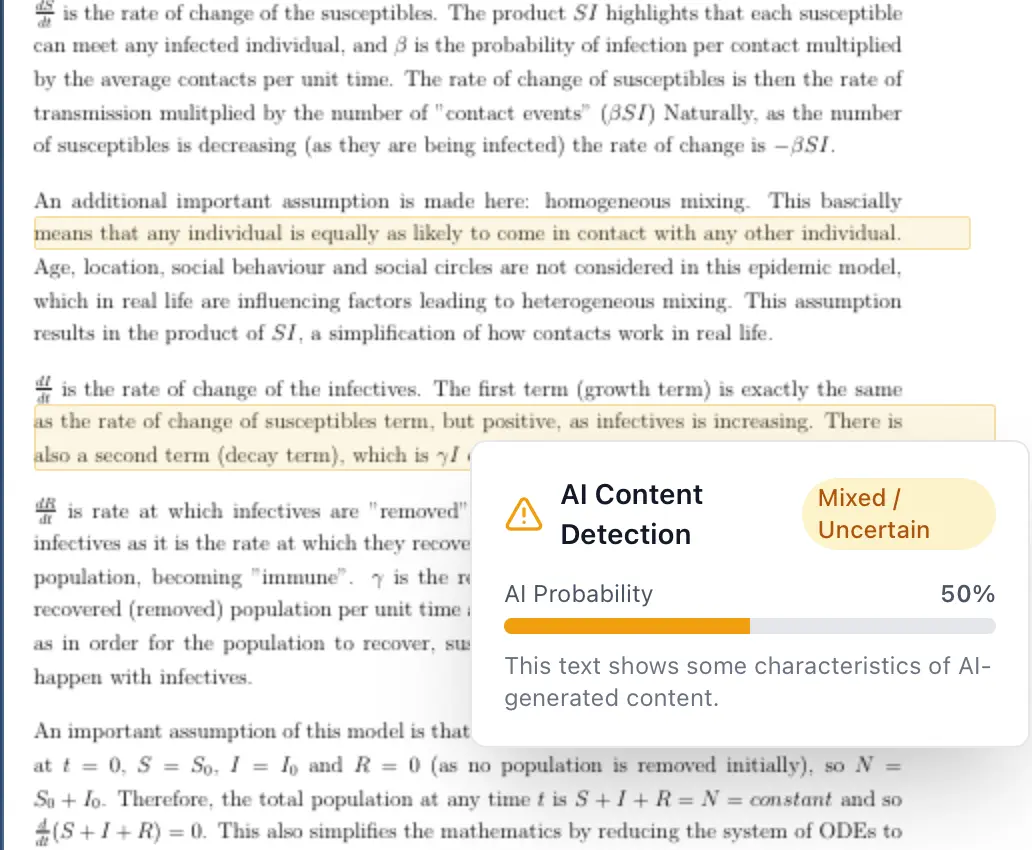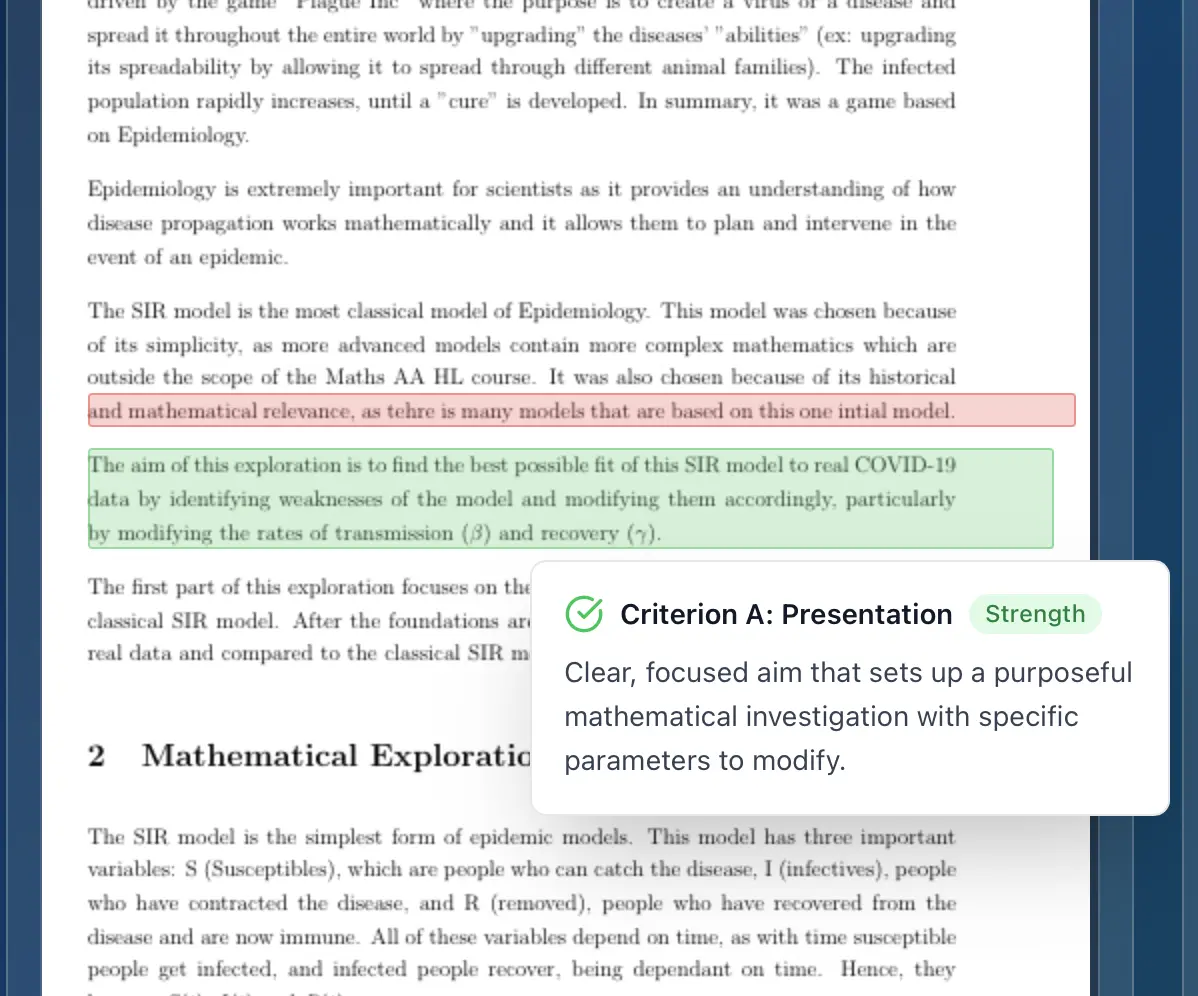IB Computer Science IA: Choosing the Right Programming Language
Selecting the right programming language for your IB Computer Science Internal Assessment (IA) is a critical decision that can significantly impact your project's success and your final grade. This guide will walk you through the key factors to consider, explore popular language choices, and provide actionable tips to help you make an informed decision. We'll cover everything from aligning your language choice with your project's requirements to understanding the IB's assessment criteria and how to demonstrate your skills effectively. By the end of this post, you'll have a clear understanding of how to choose a language that sets you up for success in your IB Computer Science IA.
Introduction (Answer the Query Immediately)
Choosing the right programming language for your IB Computer Science IA is more than just picking your favorite. It's about selecting a tool that aligns with your project's goals, your skill level, and the IB's assessment criteria. This decision directly impacts your ability to demonstrate algorithmic thinking, implement complex solutions, and ultimately, achieve a high score. This guide will explore popular languages like Python, Java, and JavaScript, and help you understand the factors that make each suitable for different types of projects. We'll also delve into how to justify your choice and showcase your programming prowess to the examiners.
Struggling with IB Assessments?
Get instant, detailed feedback on your work with AI that understands IB criteria.

Core Content Sections
Understanding the IB IA Requirements
Before diving into specific languages, it's crucial to understand what the IB expects from your IA. The IA assesses your ability to apply computer science principles to solve a real-world problem. Key criteria include:
- Planning (Criterion A): Defining a clear scenario, justifying your solution, and establishing measurable success criteria.
- Solution Overview (Criterion B): Documenting your development process and providing a detailed design overview.
- Development (Criterion C): Implementing your solution with appropriate techniques and justifying your choices.
- Functionality and Extensibility of Product (Criterion D): Demonstrating a functional product with potential for future development.
- Evaluation (Criterion E): Evaluating your product against the success criteria and providing recommendations.
Your choice of programming language should enable you to effectively address each of these criteria.
Factors to Consider When Choosing a Language
Several factors should influence your decision:
- Project Requirements: What type of project are you undertaking? A web application might require JavaScript, while a data analysis project might be better suited for Python.
- Your Skill Level: Choose a language you're comfortable with. Trying to learn a new language while developing your IA can be overwhelming and negatively impact your progress.
- Language Features: Does the language offer libraries, frameworks, or features that will simplify your development process?
- Community Support: A large and active community can provide valuable resources, tutorials, and troubleshooting assistance.
- IB Suitability: Is the language widely accepted and understood by IB examiners? While most common languages are acceptable, it's always a good idea to confirm with your teacher.
Popular Programming Languages for the IB Computer Science IA
Here's a breakdown of some popular choices and their suitability for different types of projects:
- Python:
- Strengths: Easy to learn, versatile, extensive libraries for data analysis, machine learning, and web development (e.g., NumPy, Pandas, Flask, Django).
- Suitable Projects: Data analysis, machine learning, web applications, scripting, automation.
- Example: A project analyzing social media sentiment using natural language processing.
- Java:
- Strengths: Object-oriented, platform-independent, robust, widely used in enterprise applications.
- Suitable Projects: Desktop applications, mobile applications (Android), game development, large-scale systems.
- Example: A desktop application for managing a library's inventory.
- JavaScript:
- Strengths: Essential for web development, runs in browsers, large ecosystem of frameworks and libraries (e.g., React, Angular, Vue.js).
- Suitable Projects: Web applications, interactive websites, front-end development, back-end development (Node.js).
- Example: A web-based tool for visualizing data from a scientific experiment.
- C++:
- Strengths: High performance, low-level control, suitable for resource-intensive applications.
- Suitable Projects: Game development, operating systems, embedded systems, simulations.
- Example: A simulation of a physical system, such as fluid dynamics.
- C#:
- Strengths: Object-oriented, developed by Microsoft, used for Windows applications and game development (Unity).
- Suitable Projects: Windows applications, game development, web applications (ASP.NET).
- Example: A game developed using the Unity game engine.
Justifying Your Language Choice
Regardless of the language you choose, it's crucial to justify your decision in your IA report. Explain why you selected that language and how it's well-suited for your project. Consider addressing the following points:
- Alignment with Project Goals: How does the language's features support your project's requirements?
- Efficiency and Productivity: Does the language allow you to develop your solution efficiently?
- Readability and Maintainability: Is the code easy to understand and maintain?
- Availability of Resources: Are there ample libraries, frameworks, and documentation available?
- Personal Expertise: How does your existing knowledge of the language contribute to your project's success?
Example Justification (Python):
"I chose Python for this project because its extensive libraries for data analysis (NumPy, Pandas) and machine learning (Scikit-learn) are well-suited for analyzing the large dataset of customer reviews. Python's clear syntax also promotes code readability and maintainability, which is essential for a complex project like this. Furthermore, I have prior experience with Python, allowing me to focus on the project's core functionality rather than struggling with a new language."
Demonstrating Algorithmic Thinking
The IB emphasizes algorithmic thinking, which involves designing and implementing efficient algorithms to solve problems. Your code should demonstrate your ability to:
- Break down complex problems into smaller, manageable steps.
- Design and implement efficient algorithms.
- Use appropriate data structures.
- Optimize your code for performance.
Provide clear explanations of your algorithms in your IA report, including pseudocode or flowcharts if necessary.
Example:
"The core algorithm for sorting the customer reviews by sentiment score uses the Quicksort algorithm, which has an average time complexity of O(n log n). This algorithm was chosen for its efficiency in handling large datasets. The sentiment scores are stored in a dictionary data structure, allowing for quick access and retrieval."
Common Challenges/Mistakes Section
- Choosing a Language You Don't Know: This is a common mistake that can lead to frustration and delays. Stick to a language you're comfortable with.
- Solution: If you want to learn a new language, do so before starting your IA.
- Overcomplicating the Project: Trying to implement too many features or using overly complex algorithms can make your project unmanageable.
- Solution: Focus on a core set of features and implement them well.
- Poor Code Documentation: Failing to document your code can make it difficult to understand and maintain.
- Solution: Use comments to explain your code's functionality and purpose.
- Ignoring the IB Criteria: Not aligning your project with the IB's assessment criteria can significantly impact your grade.
- Solution: Carefully review the IB criteria and ensure that your project addresses each aspect.
- Lack of Planning: Starting to code without a clear plan can lead to a disorganized and inefficient project.
- Solution: Create a detailed plan that outlines your project's goals, features, and implementation steps.
Pro Tip: Get AI-Powered Grading
Stop second-guessing your grades. Get instant feedback aligned with official IB rubrics.

Advanced Tips/Strategies Section
- Use Version Control (Git): Version control allows you to track changes to your code, revert to previous versions, and collaborate with others.
- Write Unit Tests: Unit tests help you ensure that your code is working correctly and that changes don't introduce new bugs.
- Follow Coding Style Guides: Adhering to a consistent coding style makes your code more readable and maintainable.
- Seek Feedback Early and Often: Get feedback from your teacher, peers, or mentors throughout the development process.
- Optimize for Performance: Identify and address performance bottlenecks in your code.
- Explore Advanced Language Features: Use advanced language features, such as object-oriented programming, design patterns, or concurrency, to demonstrate your skills.
- Consider User Experience (UX): If your project involves a user interface, pay attention to UX principles to create a user-friendly and intuitive experience.
Technology and Modern Assessment Section
Technology is transforming the way IB assessments are conducted and evaluated. AI-powered tools are becoming increasingly prevalent in education, offering new ways to provide feedback, assess student work, and streamline the grading process.
Marksy is a leading AI grading assistant specifically designed for the International Baccalaureate (IB). It uses official IB rubrics to provide instant, accurate, and detailed feedback on student work, including IAs. Marksy helps teachers provide consistent and objective feedback, saving them time and ensuring that students understand exactly how to improve their work.
AI grading tools like Marksy analyze student code, identify potential errors, and provide suggestions for improvement based on the IB's assessment criteria. This can be particularly helpful in assessing the "Development" criterion (Criterion C), where students are evaluated on their use of programming techniques and algorithmic thinking. Marksy can also help assess the "Functionality and Extensibility of Product" (Criterion D) by analyzing the code's structure and identifying potential areas for improvement.
By leveraging AI, teachers can focus on providing personalized guidance and support to their students, rather than spending hours manually grading assignments. This allows students to receive more timely and relevant feedback, leading to improved learning outcomes.
Conclusion with Clear Next Steps
Choosing the right programming language for your IB Computer Science IA is a crucial step towards success. By considering your project's requirements, your skill level, and the IB's assessment criteria, you can make an informed decision that sets you up for a high score. Remember to justify your language choice, demonstrate algorithmic thinking, and seek feedback throughout the development process.
Next Steps:
- Brainstorm Project Ideas: Explore different project ideas and consider which programming languages would be best suited for each.
- Assess Your Skills: Evaluate your current programming skills and identify any areas where you need to improve.
- Research Languages: Research different programming languages and their features, libraries, and frameworks.
- Choose a Language: Select a language that aligns with your project goals and your skill level.
- Start Planning: Create a detailed plan for your IA, including your project's goals, features, and implementation steps.
Ready to take your IB Computer Science IA to the next level? Try Marksy for free today and experience the power of AI-powered grading assistance! Sign up now and see how Marksy can help you achieve a higher score and streamline your grading workflow.